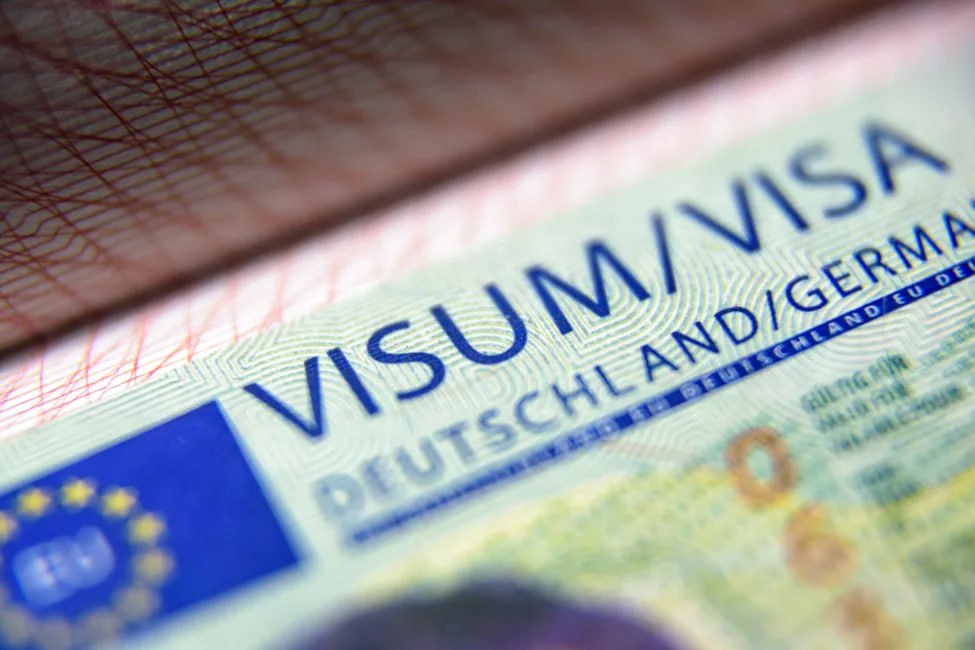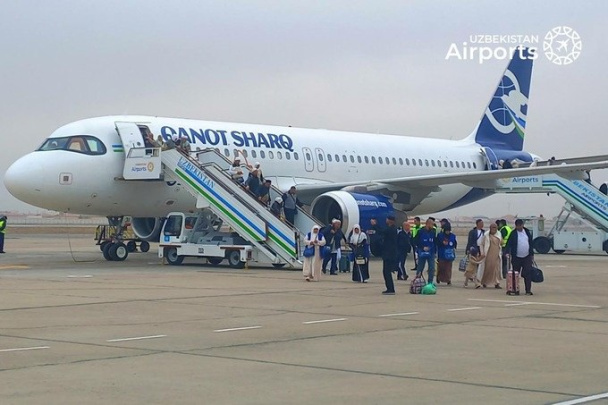Several Uzbeks who contacted Kun.uz said that there are obstacles in the process of scheduling a meeting with the embassy on Schengen visa issues through the Visametric organization.
“Visametric’s representative office in Uzbekistan accepts documents for issuing visas to Germany and Sweden. The problem affects both countries. But the number of people who need to go to Germany is much more than those who go to Sweden, so the citizens of Uzbekistan who are in Germany and who want to come to Germany from Uzbekistan are actively trying to find a solution to the problem. Our compatriots began to face the problem seriously from the middle of 2021.
When entering the Visametric website, the applicant is not given specific information about the available date. When we try to occupy the empty dates that have appeared, the system freezes without movement,” one of the applicants said in an interview with us.
Uzbeks in Germany say that at first the German Embassy in Tashkent said that if it is not possible to get an appointment through Visametric, it is possible to contact the embassy directly.
“But now it is not possible to apply to the embassy and reserve a seat. Previously, there was a Visametric office in the cities of Andijan and Bukhara, but now they are closed for some reason. When these branches were working, there was no problem with getting a queue, it was possible for the next 2-3 weeks,” another applicant said.
As it is not possible to make a reservation through the Embassy and the Visametric websiteб people have to queue through travel agencies.
“Travel agencies will book an appointment for you to go to the embassy for an interview, which is about $200 per person. Booking through Visametric was free. We are forced to use the services of travel agencies because of the complexity and sometimes the impossibility of using the free service”.
Last month, a group of Uzbeks wrote a letter to the German ambassador, Thilo Klinner, asking him to solve the problem, but it is said that he has not yet replied.
“The embassy is aware of the problem”
According to the official website of the German embassy in Tashkent, inquiries about the status of visa applications are not answered due to a shortage of labor resources. At the same time, the embassy is aware of the problem.
The official notice mentions that Visametric can only submit visa documents, but it does not review applications, make decisions, or print visa labels.
“Visametric regularly updates the appointment times. Reception times for submitting documents are always in accordance with the embassy’s requirements for the Visametric visa center. The Embassy is aware that these appointment times are currently being booked very quickly by travel agencies.
The embassy draws your attention to the fact that the offers of third-party service providers, such as travel agencies, in connection with the submission of visa applications are not at all related to the offer of the Visametric visa center, which is an external service provider.
In addition, additional measures are being taken to prevent abuse of the admission system by the external service provider and to put an end to cases of artificial shortage of admission times,” the report reads.
The embassy recommended not to register through third parties – travel agencies.
“The number of applicants has increased” – Visametric
Kun.uz tried to get a comment from Visametric’s office in Uzbekistan about the reason why it became difficult to sign up for an interview. The operator who talked to us said that this is due to the increase in the number of interviewees.
“I cannot give exact figures about how much the number of applicants has increased compared to previous years. There are many applicants. We now have places available for August. Not for the next month,” he said.
The employee of the travel company who spoke to us said that it has been impossible to get a queue for a Schengen visa to Germany for 2 months.
“There are rumors that the system will work from June 18. If it works, it’s possible, but I can’t promise. We can arrange a queue for national visa for $100. But a Schengen visa is not possible now,” he said.
An increase in visa applicants can also be noticed when contacting the Visametric office by phone. Kun.uz reporter had to wait 45 minutes to contact Visametric operators between 10:00 and 11:00 on June 8.
Why did the applicants increase?
The German government has a long-term plan to attract skilled migrants from countries outside the European Union. Germany may be one of the new destinations for the Uzbek government, which is interested in reducing its dependence on Russia.
In May of this year, it became known that the governments of Uzbekistan and Germany are working on an agreement on migration. It was noted that this agreement will give Uzbek students and workers the opportunity to study and work in Germany.
However, even before that, starting from last year, Germany started making attractive job offers for Uzbeks.
In October 2022, the Foreign Labor Migration Agency started inviting citizens of Uzbekistan to work in Germany under several projects.
In the first project, training of nurses, German language training and employment in the “Asklepios” medical institution was envisaged, and in the second project, training of general medicine nurses, German language training and employment in the “Aachen Universitatsklinikum” medical institution were envisaged.
Also, an agreement was reached on vocational training of truck drivers and recruitment to Germany.
In addition, an agreement was signed with the German company “SPA GmbH” on training and employment of 100 Uzbek citizens in the German territory on the basis of the dual system in medicine, elderly care, metal structures and other technical fields.
In December 2022, agency officials told journalists that the geography of sending citizens to work in other countries is expanding and language courses are being organized to attract them to work in Germany.
It was reported that in March 2023, Uzbekistan and Germany agreed to sign an agreement on attracting Uzbek citizens to work in Germany in the field of nursing and elderly care.
In May, the parties discussed the issues of filling 5,000 educational vacancies in the federal state of Saxony-Anhalt. It is planned to fill these jobs from January 1, 2024 to December 31, 2028 by Uzbek youth and labor migrants.






